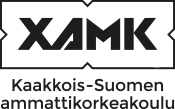Design thinking (5 cr)
Code: MU00DT17-3007
General information
Enrollment
23.08.2021 - 29.08.2021
Timing
01.09.2021 - 17.12.2021
Number of ECTS credits allocated
5 op
Virtual portion
2 op
Mode of delivery
60 % Contact teaching, 40 % Distance learning
Campus
Kouvola Campus
Teaching languages
- Finnish
Seats
20 - 50
Degree programmes
- Degree Programme in Bioproduct Design
- Degree Programme in Graphic Design
- Degree Programme in Fashion and Costume Design
- Degree Programme in Interior Architecture and Furniture Design
Teachers
- Heli Abdel-Rahman
- Esa Hämäläinen
- Marjo Kivilompolo
Teacher in charge
Heli Abdel-Rahman
Groups
-
GRKV21SPGraphic design, full-time studies
-
SKKV21SPSisustusarkkitehtuuri ja kalustesuunnittelu, päivätoteutus
Objective
You learn the methods of the design process. You learn to utilise different brainstorming methods when looking for new user-oriented solutions.
You learn to observe your environment.
What do people want and need in their lives?
How can a designer improve the quality of life?
By using sketches and other visual presentation methods, you learn to facilitate the problem-solving and thinking processes.
Content
How does the design process function and how are new ideas generated?
How do you visualise your idea and develop it further from the sketch to the prototype and product?
Materials
Available in Learn platform.
Key will be informed before course starts.
Teaching methods
Xamk offers its students an opportunity to pursue studies flexibly to suit their various life situations. Students can choose between three learning routes: a learning route based on a working week, a learning route that accelerates the studies, and a work-based learning route.
A learning route based on a working week according to timetable.
Student workload
5cr is 135h where contact teaching is 70h and independence working is 65h
Further information
The study module consists of the lectures which are related to the subject, of short learning tasks and excursion.
Evaluation scale
1-5
Assessment methods and criteria
Student's self-reflection and peer evaluation
Active participation and approved assignments
